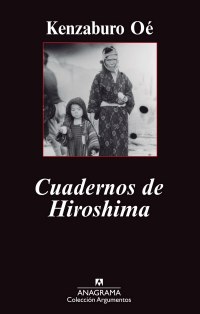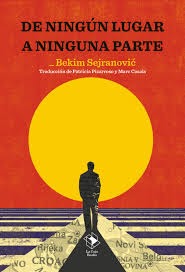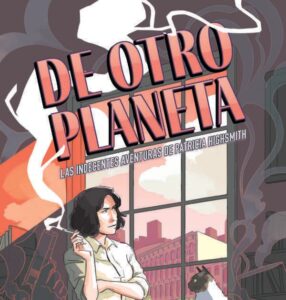
Review of the book “Hiroshima Notebooks” by Kenzaburo Oé.
Today I want to talk to you about a book that has had a profound impact on me: Hiroshima Notebooks, by Kenzaburo Oé. It is a compilation of articles that the Japanese author wrote between 1963 and 1965 about the consequences of the atomic bomb that fell on Hiroshima on August 6, 1945.
“Hiroshima Notebooks”, by Kenzaburo Oé, a Japanese writer who received the Nobel Prize for Literature in 1994. It is a work that collects the testimonies of the survivors of the nuclear attack that the city of Hiroshima suffered on August 6, 1945. , as well as the author’s reflections on the meaning and consequences of that catastrophe.
Oé visited Hiroshima in 1963, on the occasion of the ninth world conference against nuclear weapons, and was interested in learning first-hand the stories of those forgotten by the atomic bomb: lonely old people, disfigured women, doctors who fought against the effects of the radiation. Oé admired his daily heroism, his resistance to the temptation of suicide, his dignity in the face of horror. How to give meaning to a destroyed life? What have we left from the nuclear tragedy? Who can put an end to that part of Hiroshima that we all carry inside? Oé does not offer answers to these questions, but rather he poses them to himself and to his readers. Thus, his “reportage” becomes a treatise on humanism with universal scope.
The book is divided into four parts: “The Doctors”, “The Elders”, “The Women” and “The Children”. In each of them, Oé narrates the experiences and feelings of the protagonists in a sober and precise style, without falling into sensationalism or sentimentality. At the same time, Oé expresses his own opinion about Japan’s role in the war, the moral responsibility of intellectuals, the need for active pacifism, and the hope for a future without violence. The book is a valuable and moving testimony about one of the most dramatic episodes in the history of the 20th century, and an invitation to reflect on the value of human life and respect for nature.
“Hiroshima Notebooks” is a moving and powerful work by Nobel Prize winner Kenzaburo Oé. The book is made up of a series of essays and reflections that Oé wrote after visiting Hiroshima in 1963, eighteen years after the atomic bomb was dropped on the city. The work is Oé’s personal response to the tragedy and its impact on Japanese society.
The book is divided into two parts. In the first, Oé shares his impressions and reflections on his visit to Hiroshima. He describes the monuments and memorials, the museums and historical sites he visited, and how the tragedy of the atomic bomb still feels fresh in the city. Oé also shares personal stories of bomb victims and survivors, and how their lives have been affected by the traumatic event.
In the second part, Oé delves into his reflections on the meaning of Hiroshima in Japanese culture and in the world. He examines how the atomic bomb has changed the way Japan and the world views war, peace, and humanity in general. He also reflects on how tragedy has affected literature and art, and how writers and artists can respond to violence and human suffering.
Throughout the book, Oé’s prose is lyrical and emotional. His detailed descriptions of the places and events of Hiroshima are vivid and striking, and his philosophical reflections are profound and provocative. Oé also presents a subtle critique of Japanese politics and culture, which often evade responsibility and blame for the war and the tragedy of Hiroshima.
“Hiroshima Notebooks” is an exceptional literary work that examines the tragedy of the atomic bomb from a personal and philosophical perspective. Oé’s poetic prose and depth of reflections make the book an emotionally impactful and uplifting read. The work is a call to reflection and action, to remember and honor the victims of the atomic bomb, and to work for peace and humanity in the world.
Oé, who received the Nobel Prize for Literature in 1994, was interested in the testimonies of the survivors of the nuclear horror: lonely elderly people, disfigured women and, above all, doctors who fought against the toxic effects of radiation. Oé saw in his daily heroism, in his rejection of suicide, the very image of human dignity.
The book is neither an objective report nor a political denunciation. It is rather an ethical and existential reflection on the meaning of life in the face of the abyss of absolute evil. How to live after having seen the worst? What do we have left after the nuclear disaster? Who can put an end to that part of Hiroshima that we all carry inside?
Oé does not give answers to these questions. He only questions himself and questions us. And this is how his work acquires a universal and timeless dimension. His articles allow us to hear the voices of the forgotten and invite us to think about our responsibility as human beings.
Hiroshima Notebooks is an essential book to understand the history of the 20th century and to reflect on the challenges of the present and the future. I highly recommend it if you want to read something different, deep and moving.
I hope you liked this entry and that you are encouraged to read this very special book. You can find it at the Anagrama publishing house or in any bookstore. See you soon with more literary recommendations.
Source: https://algunoslibrosbuenos.com/cuadernos-de-hiroshima


